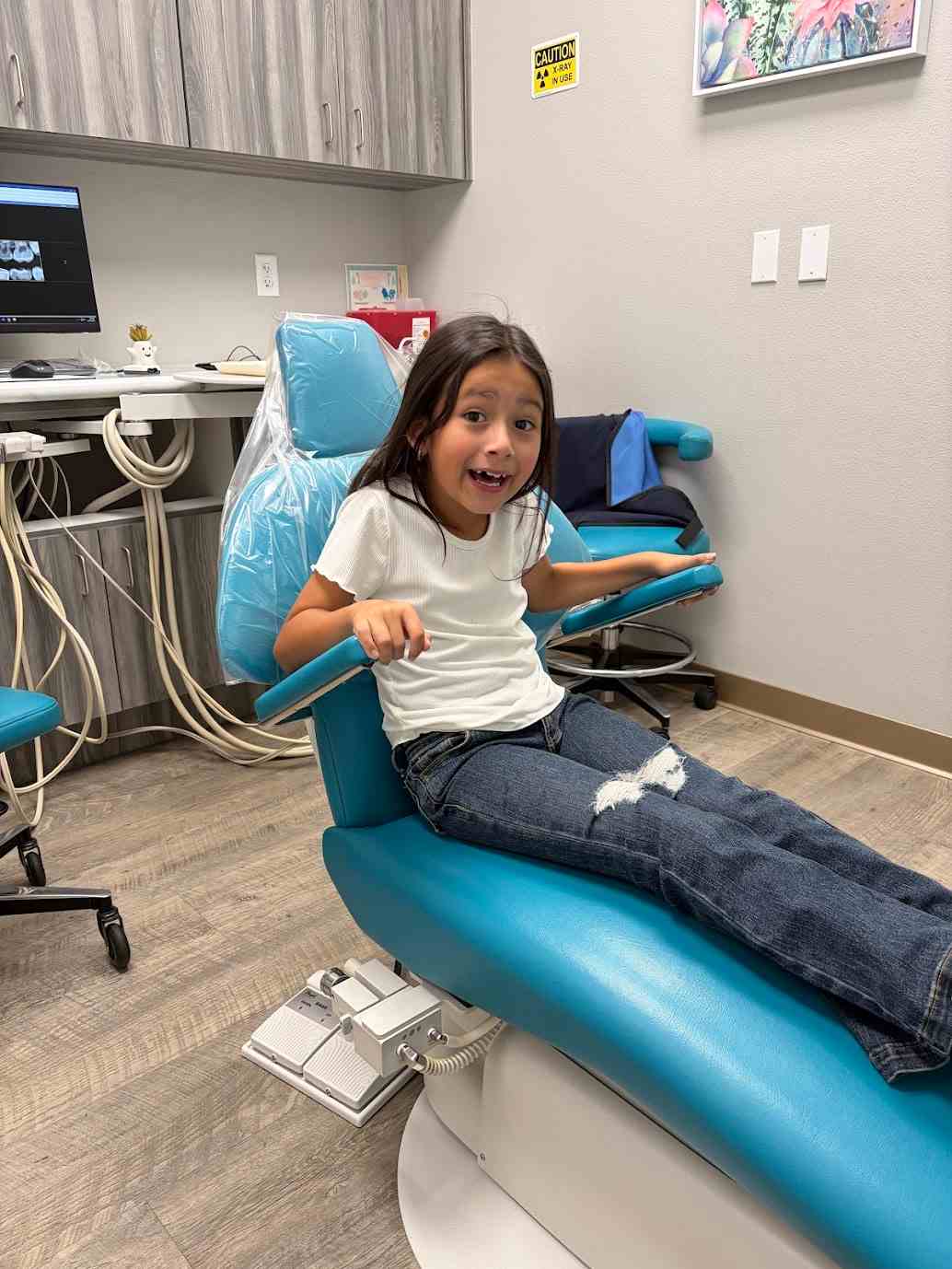Author Name: Dr. Sandra Thompson
When winter temperatures dip in Las Vegas, even a short burst of cool air can make your child’s teeth twinge. This happens because cold air and sudden temperature changes cause tooth enamel to contract, which can expose the more sensitive inner dentin layers. When these layers are stimulated, the tiny nerve endings inside the teeth react — leading to quick, sharp bursts of pain that may come and go.
Children who breathe through their mouths or spend time outdoors without covering their faces may feel this discomfort more intensely. Dry desert air can strip away the protective moisture that coats enamel and gums, leaving teeth even more sensitive. And even if your child’s teeth are healthy, thin or worn enamel can still make them react painfully to cold air, wind, or icy drinks.
Pro Tip: “Sensitivity that comes and goes with cold air isn’t always a dental emergency — but recurring or lingering pain deserves attention.” — Dr. Sandra Thompson
Acidic foods, sugary snacks, and poor brushing habits can gradually wear down the protective enamel on your child’s teeth. When enamel becomes thinner, it exposes the sensitive dentin layer underneath — making even mild temperature changes feel painful. Kids who sip on juice or soda frequently are especially prone to this type of cold sensitivity.
Cavities act like tiny traps for cold air and liquids, causing sharp, localized pain in one area. If your child complains of tooth pain when eating sweets or drinking cold beverages, it could be a sign of early decay. Without treatment, these small cavities can quickly worsen, leading to infection or more severe discomfort.
Las Vegas winters often bring lower humidity, which can dry out gums and make them more likely to recede. When gum tissue pulls back, it exposes the roots of the teeth — areas that don’t have protective enamel. This exposure can lead to sudden, sharp pain when your child breathes through their mouth or eats something cold.
4. Cracked or Damaged Fillings
Children with existing fillings may feel sensitivity if those restorations have small cracks or gaps. Temperature shifts between warm indoor air and cold outdoor air can cause fillings to expand and contract. Over time, these micro-movements let cold air seep in, irritating the tooth’s nerves and causing short bursts of pain.
5. Sinus Pressure or Infections
During cold and flu season, sinus congestion can press against the upper jaw, creating pain that feels like a toothache — especially around the upper molars. This discomfort usually affects several teeth at once and may come with other symptoms like a stuffy nose or headache. If the pain improves once sinus symptoms clear, it’s likely not dental-related.

Here is a simple guide for parents to compare symptoms:
Sensitivity (Mild) - Possible Infection (Serious)
Pain only with cold air or drinks - Pain lingers after cold is gone
Comes and goes - Constant or throbbing pain
Affects multiple teeth - Localized to one area
No swelling or redness - Swelling, redness, or facial puffiness
Short duration - Wakes child at night or disrupts eating
1. Use a Desensitizing Toothpaste
Special toothpastes for sensitivity contain active ingredients that block pain signals from the tooth’s nerves. Encourage your child to use it twice daily, just like regular toothpaste. With consistent use, sensitivity usually decreases over time.
2. Maintain a Gentle Brushing Routine
Always choose a soft-bristled toothbrush and fluoride toothpaste for kids. Brushing too hard can wear down enamel and cause gum irritation. Teach your child to use small, circular motions to clean teeth thoroughly without putting pressure on sensitive areas.
3. Encourage Nose Breathing
Mouth breathing in cold Las Vegas air can dry the enamel and gums, making teeth more sensitive. Encourage nose breathing when outdoors or have your child cover their mouth with a scarf to keep warm air circulating and reduce irritation.
4. Watch for Food Triggers
Limit acidic or sugary foods such as citrus fruits, sodas, and candy that weaken enamel. Instead, offer warm (not hot) drinks like milk or water to keep your child comfortable and hydrated while easing sensitivity.
5. Keep the Mouth Moisturized
Cold, dry winter air can reduce saliva flow — a natural protector against tooth sensitivity. Have your child sip water throughout the day or chew sugar-free gum to help stimulate saliva and keep their mouth moist. A hydrated mouth means better protection and less discomfort.
Parents should reach out to a pediatric dentist if their child has:
📞 If your child experiences any of these symptoms, contact Dr. Sandra Thompson at Desert Kids Dental for a gentle, expert evaluation. Early treatment can ease discomfort and prevent more serious dental problems from developing.
1. Is cold weather tooth pain normal for kids?
→ Mild sensitivity during cold weather is fairly common, especially when enamel is thin or dry air causes gum irritation. However, lingering or severe pain may signal a cavity or infection that needs professional attention.
2. Can sinus infections cause tooth pain?
→ Yes. Sinus pressure from winter colds or allergies can radiate pain to the upper teeth, making it feel like a toothache. If the discomfort affects multiple teeth and improves as congestion clears, it’s likely sinus-related.
3. What’s the best toothpaste for sensitive teeth in kids?
→ A pediatric-friendly desensitizing or fluoride toothpaste is ideal. Your child’s dentist can recommend one that strengthens enamel while being gentle enough for daily use.
4. How can I help my child if tooth pain starts at night?
→ Keep their head elevated, offer warm water (not hot) to drink, and avoid very cold foods or drinks. These steps can minimize discomfort until you can call your dentist the next morning.
5. When should we see a dentist for winter tooth pain?
→ Schedule an appointment if the pain lasts more than a few days, keeps your child from eating or sleeping, or is accompanied by swelling or fever. Early care helps prevent complications and restores comfort quickly.